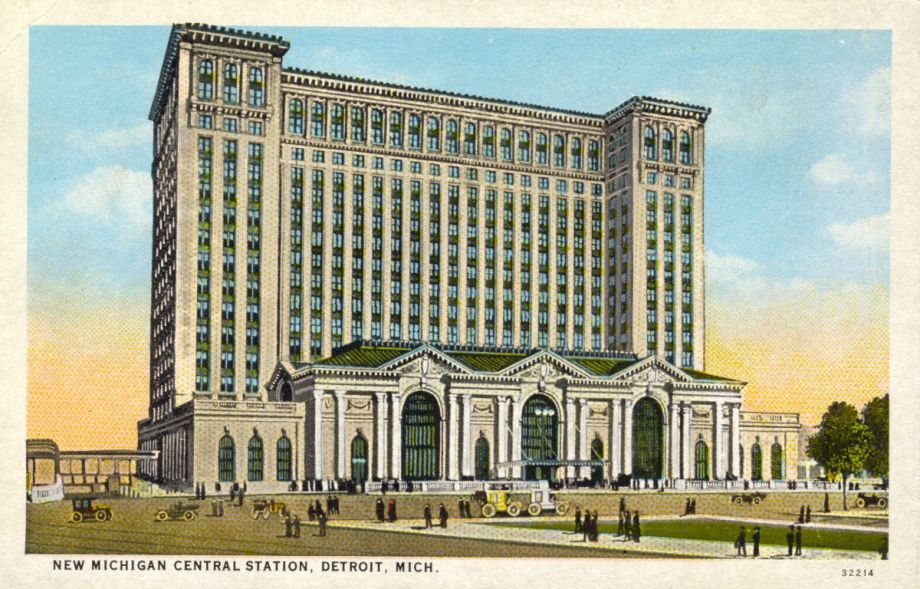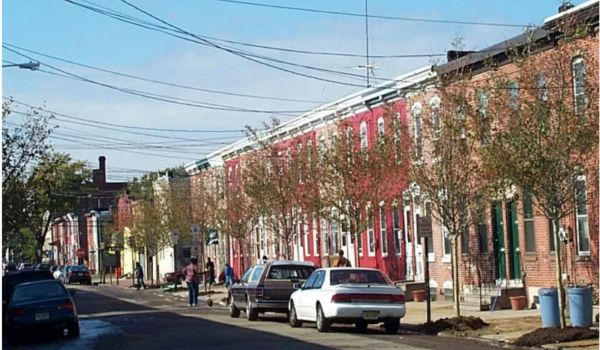Ever since Ford announced that it would restore Detroit’s iconic Michigan Central Station, people have been coming out of the woodwork to return historic items that once belonged in the station and disappeared under mysterious circumstances.
An antique clock that had been stolen from the station sometime after its closure was the first item returned, reports the Free Press. The Henry Ford museum in Dearborn got an anonymous call last week, which led to a text message exchange between the alleged thief and Ford Motor Land Development Corp. The company was told to bring two men and a truck to a burned-out building where, the texter claimed, the object had been left.
Maintenance workers found the clock exactly as described, and Ford historians validated that it was the real deal. As a result, Dave Dubensky, chairman and CEO of Ford Land, told the Free Press that the company would be happy to retrieve any other historic items, no questions asked. Dubensky provided his assistant’s phone number.
The company may have gotten more than it bargained for. The Free Press reported Wednesday that two dozen people throughout the Midwest have called, offering stolen property or help with architectural restoration.
One caller said he had a plaster medallion of flowers. Another offered an original fountain. Multiple people have called about lights. One caller even offered to donate money to the restoration project.
“We don’t know how to accept those donations yet. I’ve got to figure that out,” Dubensky told the Free Press. After all, the paper said, Ford is a multibillion-dollar company; it didn’t expect to have to launch a Kickstarter to fund the project.
Ford does have a “wish list” of historic items from the station that it would like to be returned, if possible, including light fixtures, the clock that hung above the ticket window, ticket window grills, elevator transom panels and decorative ornaments surrounding the large steel windows.
The station, which opened in 1914, was a grand “return to classicism and romanticized transportation,” according to Historic Detroit. The Beaux Arts marvel closed to passenger service in 1988 after decades of competition from the automobile and airline travel led to a drop in rail service. And from then until 1995, the closed station remained closed, but “wide open to trespass and looting,” Historic Detroit said, presumably when many of the historical objects walked off in the first place.
A number of plans for the station came and went in the ensuing years, until on June 11, 2018, when Ford announced it had agreed to purchase the station for an undisclosed amount. Ford says it wants to rehab the depot into a research campus, employing 2,500 Ford workers, and also lease space to startups and develop luxury loft apartments. The ground floor will be open to the public, with shops and restaurants. The company plans to retain the passenger tracks at the station, and thus the capability to run trains — though whether trains will actually run there is unclear, said the Free Press.
Over the past weekend, Ford held open houses for curious visitors who wanted to see the decrepit building one last time before its transformation; 20,000 people attended, the Free Press reported.

Rachel Kaufman is Next City's senior editor, responsible for our daily journalism. She was a longtime Next City freelance writer and editor before coming on staff full-time. She has covered transportation, sustainability, science and tech. Her writing has appeared in Inc., National Geographic News, Scientific American and other outlets.
Follow Rachel .(JavaScript must be enabled to view this email address)







_600_350_80_s_c1.JPEG)








